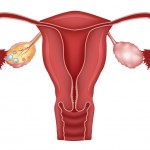The Cleveland Clinic will soon be the first institution in the United States to perform uterine transplant surgeries.
Transplantation surgery is performed in women who are born without a uterus, or have had uterine damage from infection or a procedure. These scenarios present the inability of a fertilized embryo to implant in the uterus where it needs to grow and develop.
Thus far, Sweden is the only country to successfully perform this operation, which took place at the University of Gothenburg. This method could offer help to the roughly 50,000 U.S. women who struggle with infertility related to uterine factor infertility (UFI).
We are very excited. Uterine transplantation presents a unique option for women coping with UFI, states Andreas Tzakis, MD, the transplant surgeon at the Cleveland Clinic who is spearheading this project. At the same time, we are aware of the tremendous responsibility we have undertaken. This is a complex trial, and we must make sure everything we do gives our patients the best opportunity for a normal delivery.
In Sweden, this surgery has been performed on nine women resulting in four births, with another one due to arrive in January. The first baby was born in September 2014, coming from a patient with Rotikansky syndrome (congenital absence of the uterus). The patient, who became pregnant one year after the transplant, received three anti-rejection medications during the course of the pregnancy.
While this operation is certainly exceptional, it does raise concerns -- the chief one being that many organ transplants are performed as a life-saving necessity. Some people receive transplants to improve their quality of life, and for women with UFI certainly this would qualify. Another concern is that exposing women and their offspring to anti-rejection medication throughout the course of the pregnancy is not without significant risk.
The Cleveland Clinic has begun screening candidates to include in their trial. Ten women ages 21-39 will be selected. In the Swedish study, transplant recipients received the organ from either living or deceased donors. The Swedish team used the recipient s mother as the donor in five of their cases. The Cleveland Clinic will only utilize organs from deceased donors.
The screening process will be extensive and complicated. Lifebanc, an Ohio-based, organ-donation center, will identify deceased donors that are of menstruating age with the same blood type and a healthy uterus who had at least one successful pregnancy.
As for the trial participants, they will be required to:
- Be in a stable relationship
- Have ovaries
- Undergo psychological evaluations -- to screen for any coping issues that may interfere with the transplant, or to ensure they are not being coerced to have the procedure
- Meet a financial obligation -- since they will need to relocate to Cleveland
A year after the transplant, which is the period required to assess whether the uterus is healthy and viable, a fertilized embryo will be implanted via in-vitro fertilization. Up to nine embryos will be implanted until two healthy births are achieved. Beyond a maximum of two births, the uterus will be removed so the participant will no longer have to take immunosuppressive medication.
Complications associated with the procedure include:
- The need for immunosuppressive therapy (increases risk for infection)
- Possible rejection of the implanted uterus, despite anti-rejections drugs
- Toxicity to the fetus
- Risks for miscarriage
- Growth restriction of the fetus in the womb
- Pre-eclampsia (dangerously high blood pressure in the mother that can be potentially lethal)
- Preterm delivery
Up until now, couples affected by UFI had two options: adoption or gestational surrogacy.
Adoption or maternal surrogacy are not always acceptable options for social, ethical, cultural or religious reasons, according to Tomasso Falcone, MD, chairman of the Cleveland Clinic s Ob/Gyn & Women s Health Institute.
Now hopefully, with uterine transplantation, there will be a viable third option.




